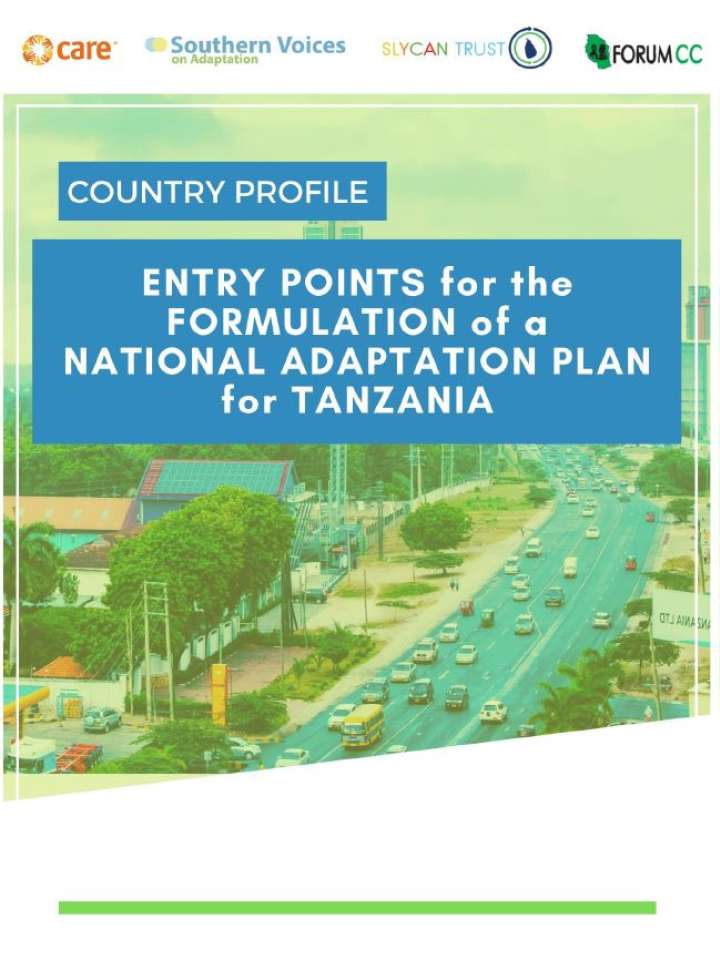Country profile: Entry points for the formulation of a national adaptation plan in Tanzania
This country profile examines Tanzania's entry points for the formulation of a national adaption plan. Tanzania is vulnerable to the adverse impacts of climate change, especially floods, droughts, epidemics, and agricultural pests and diseases. These impacts are projected to intensify over the next decades and seriously threaten the country’s food security, infrastructure, economy, ecosystems, and communities. The NAP aims to mainstream climate change adaptation into Tanzania’s national development planning, commitments under the Paris Agreement, policies, and local-level actions. By utilizing the identified entry points and addressing the adaptation needs and priorities, the NAP can be developed to integrate with existing policies, plans, strategies, mechanisms, and systems to create synergies and co-benefits.
To inform Tanzania’s NAP process, nine entry points for mainstreaming adaptation and integrating it into national processes have been identified. These entry points are as follows:
- National development planning cycles;
- National process for the implementation of the Sustainable Development Goals, national development priorities, and development funding;
- Processes to enhance cross-ministerial coordination;
- Local level implementation mechanisms and plans;
- Sectoral climate mainstreaming processes;
- Data collection and research mechanisms and systems;
- Awareness creation and education needs;
- Gender mainstreaming;
- Processes related to community, traditional, and indigenous knowledge as well as the social and cultural framework.
Explore further
